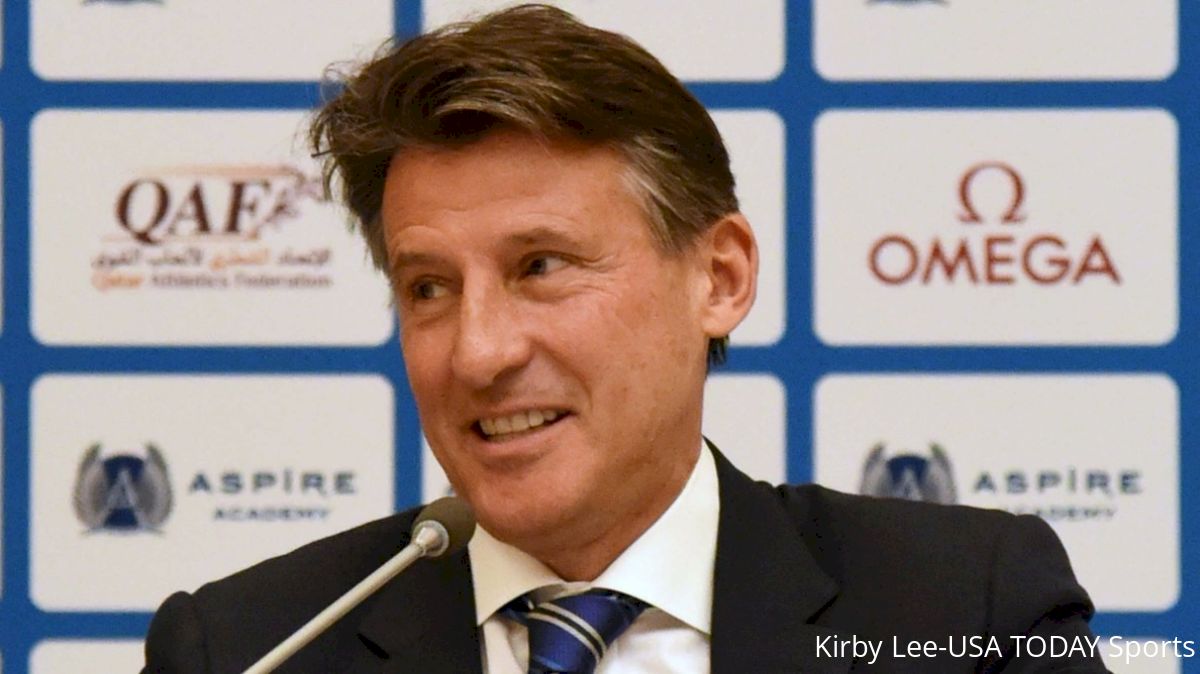IAAF Freezes Nationality Switches, Upholds Russia Ban
IAAF Freezes Nationality Switches, Upholds Russia Ban
The IAAF is upholding its global ban on Russian athletes and freezing all nationality switches.

MONACO (AP) -- The IAAF is upholding its global ban on Russian athletes and freezing all nationality switches.
Following a council meeting in Monaco on Monday, IAAF president Sebastian Coe said Russian athletics should not expect "full reinstatement" before November. The decision rules out Russia competing at the world championships in August in London.
IAAF task force chairman Rune Andersen added that although there have been "productive meetings" with Russian officials, many conditions were yet to be met before full reinstatement.
The IAAF also said it was freezing all nationality switches in athletics after complaints that a rising number of people were switching allegiance to countries where they had no previous ties, and that some were moving repeatedly.
Coe said middlemen were touting lists of athletes around various countries, describing a form of transfer market similar to soccer.
"I have spoken to many member federations who regularly receive a list of athletes that are out there and available for trade," he said. "This cannot be a sustainable system."
Runners from Kenya and Ethiopia are among those who have often moved to represent other countries. Kenya-born Ruth Jebet won the 3,000-meter steeplechase at the Rio de Janeiro Olympics while running for Bahrain, which also won marathon silver through Kenya-born Eunice Kirwa.
The decision did not affect 15 transfers already being processed.
At the last council meeting in December, the IAAF task force said Russia could not yet be reinstated because of the lack of a functional drug-testing agency there, and a lack of acceptance of the findings of investigations into drug use in Russian sport.
The IAAF suspended Russia from all international competition in November 2015 after a damning World Anti-Doping Agency report alleged mass doping and cover-ups. Since then, senior Russian athletics officials have been banned, and more WADA reports provided details of drug use and the swapping of tainted samples for clean ones.
Since February 2016, testing in Russia has been overseen by the United Kingdom Anti-Doping Agency because its Russian counterpart was banned from handling samples due to corruption claims.
Last month, the IAAF provided new guidelines for Russians hoping to compete in a neutral capacity. The IAAF said 35 Russians have applied, sending in forms listing their drug-test history under newly relaxed IAAF rules which no longer insist on Russian athletes training outside their home country. If the IAAF accepts all of them, Russia will have close to a full team at the European indoor championships in Serbia next month, just without a flag.
Following a council meeting in Monaco on Monday, IAAF president Sebastian Coe said Russian athletics should not expect "full reinstatement" before November. The decision rules out Russia competing at the world championships in August in London.
IAAF task force chairman Rune Andersen added that although there have been "productive meetings" with Russian officials, many conditions were yet to be met before full reinstatement.
The IAAF also said it was freezing all nationality switches in athletics after complaints that a rising number of people were switching allegiance to countries where they had no previous ties, and that some were moving repeatedly.
Coe said middlemen were touting lists of athletes around various countries, describing a form of transfer market similar to soccer.
"I have spoken to many member federations who regularly receive a list of athletes that are out there and available for trade," he said. "This cannot be a sustainable system."
Runners from Kenya and Ethiopia are among those who have often moved to represent other countries. Kenya-born Ruth Jebet won the 3,000-meter steeplechase at the Rio de Janeiro Olympics while running for Bahrain, which also won marathon silver through Kenya-born Eunice Kirwa.
The decision did not affect 15 transfers already being processed.
At the last council meeting in December, the IAAF task force said Russia could not yet be reinstated because of the lack of a functional drug-testing agency there, and a lack of acceptance of the findings of investigations into drug use in Russian sport.
The IAAF suspended Russia from all international competition in November 2015 after a damning World Anti-Doping Agency report alleged mass doping and cover-ups. Since then, senior Russian athletics officials have been banned, and more WADA reports provided details of drug use and the swapping of tainted samples for clean ones.
Since February 2016, testing in Russia has been overseen by the United Kingdom Anti-Doping Agency because its Russian counterpart was banned from handling samples due to corruption claims.
Last month, the IAAF provided new guidelines for Russians hoping to compete in a neutral capacity. The IAAF said 35 Russians have applied, sending in forms listing their drug-test history under newly relaxed IAAF rules which no longer insist on Russian athletes training outside their home country. If the IAAF accepts all of them, Russia will have close to a full team at the European indoor championships in Serbia next month, just without a flag.